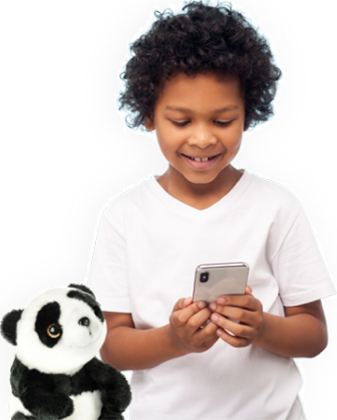Potty training a child is always an exciting time; you want to motivate your child and get results in a fun way as soon as possible. A child who is potty-trained during the day will become potty-trained at night not much later. In the beginning, as a parent, you will still let your child pee around 11 p.m. or so to empty the bladder. However, there are some children where potty training doesn't happen quite naturally. Over 15% of all six-year-old children still wet the bed.
Bedwetting is not considered a problem until children who are dry during the day regularly wet their beds at night. Bedwetting is a very annoying phenomenon; a child must actually change behavior overnight and get out of bed on their own at night or they must suddenly be able to hold their urine for a full night. Becoming potty trained then sometimes needs a push.
The older a child is the more annoying bedwetting becomes. Children become embarrassed and are afraid to go to sleepovers or school camps. When children enter adolescence, it often becomes a difficult problem altogether, which can even be experienced as traumatic. It is estimated that 1.5 percent of people still wet the bed later in life. The majority are boys.
Bedwetting
A child suffers from bedwetting when the child unintentionally wets the bed several times during sleep. Bedwetting is also known as Enuresis Noctura. It is considered a problem if bedwetting occurs at least twice a month. The child then urinates out a full puddle in bed. We speak of bedwetting if no other medical cause is found, such as a urinary tract infection, diabetes or too small bladder volume.
The literature also distinguishes between children who have never been dryly dry (primary bedwetting) or children who have been dry and started bedwetting later (secondary bedwetting). In more than half of the children, one of their parents also wet the bed until later in life. Bedwetting is a hereditary condition, potty training naturally in this situation also has a smaller chance due to heredity. Still, there are plenty of tools that can help you.
Misunderstanding
Many parents I get on the phone think their child is too lazy to get up or that they wet the bed out of some form of protest. Nothing could be further from the truth. Bedwetting is an unconscious process and children have no control over it. The main reason children wet the bed is because the brain does not properly recognize the stimulus of a full bladder at night. Children who want to attract attention are more likely to do so by not eating or complaining of a tummy ache. Becoming potty-trained is a natural process that sometimes needs a little help.

Avoidance behavior
It is not always clear to what extent a child is struggling with the problem of bedwetting and why potty training will not work. Older children in particular tend to be indifferent. The child does not know how to deal with the problem and then avoids it. By the way, this also applies to parents. Parents also don't really know what to do with it and think "she'll grow out of it. It is very important to discuss the problem of bedwetting and to communicate openly about it. This will help the child become potty trained.
You can work in the beginning with a reward system where you reward the child when there has been a dry night, but children have so little control over it that this often doesn't work either.
There are several factors that have a major influence on bedwetting
- heredity
- blowing capacity
- sleep depth
- ripening urine production
- organic causes
- emotion
- social factors
- screen time
GP
If the problem of bedwetting is prolonged, it is always advisable to go to the family doctor. Although the family doctor will not treat a child under the age of 7. But the family doctor can see if the problem is isolated (monosymptomatic bedwetting problem) or if there are further complications (not potty trained during the day, urinary tract problems, unsettled situation at home).

Bedwetting alarm as an aid to potty training
If it appears that bedwetting is an isolated problem, the bedwetting alarm is a good and effective means of contributing to potty training. We recommend the bedwetting alarm for children 5 years and older. The child must be motivated to want to solve the problem. The parents must also be motivated to actively support the child. A bedwetting alarm works with special sensor pants. A transmitter is clicked onto these pants. As soon as moisture is detected, the transmitter sends a signal to the alarm, which rings. It also sends a signal to the Dryly parent app so that parents wake up as well.
The latter is very important because most children still sleep through the bedwetting alarm in the beginning. In addition, it is also nice for parents to know what happens at night. From the dashboard in the app, you can also easily share information with a family doctor. Dryly has done everything possible to make the bedwetting alarm method fun and effective.
For example, the alarm clock is not in the socket but in a cute panda bear; called Wizzu. Wizzu helps your child on the road to dry nights and potty training. This also translates back to the mobile app where the child can earn points by following a set nighttime ritual. With these points, Wizzu can then be dressed up with fun gadgets.

